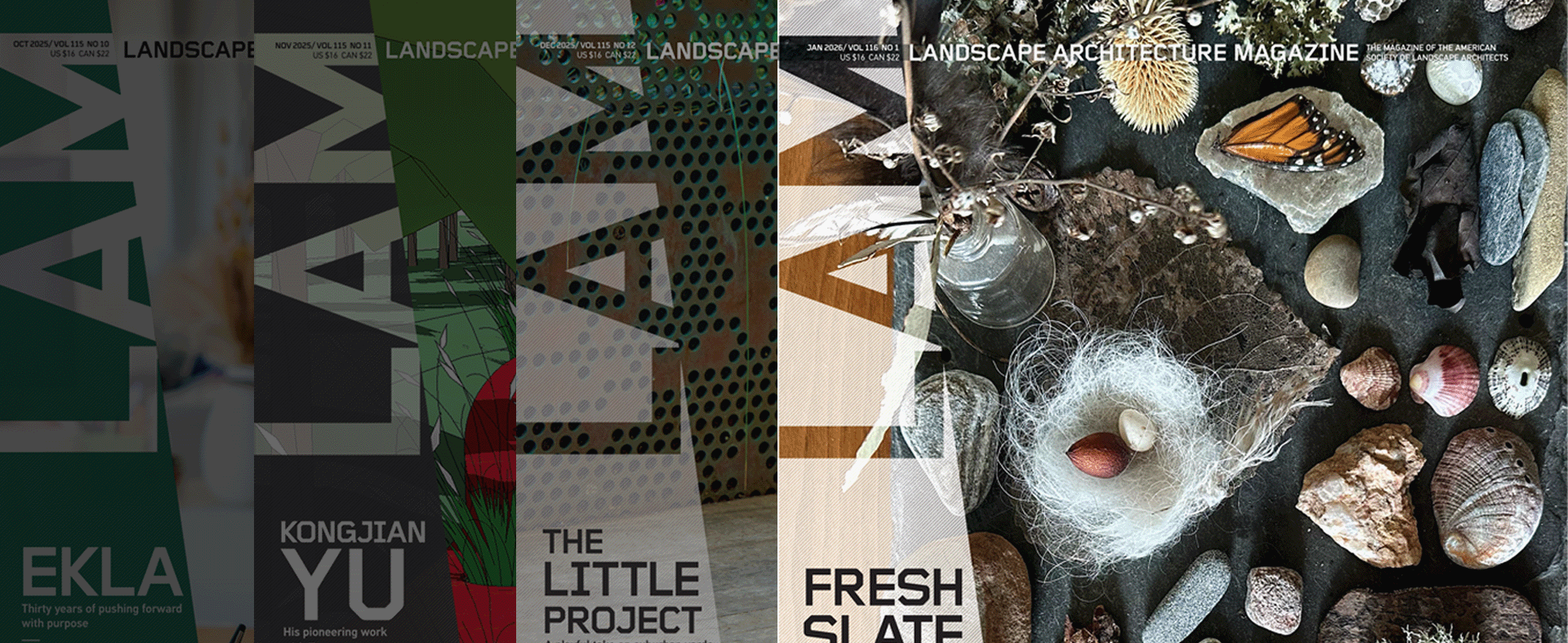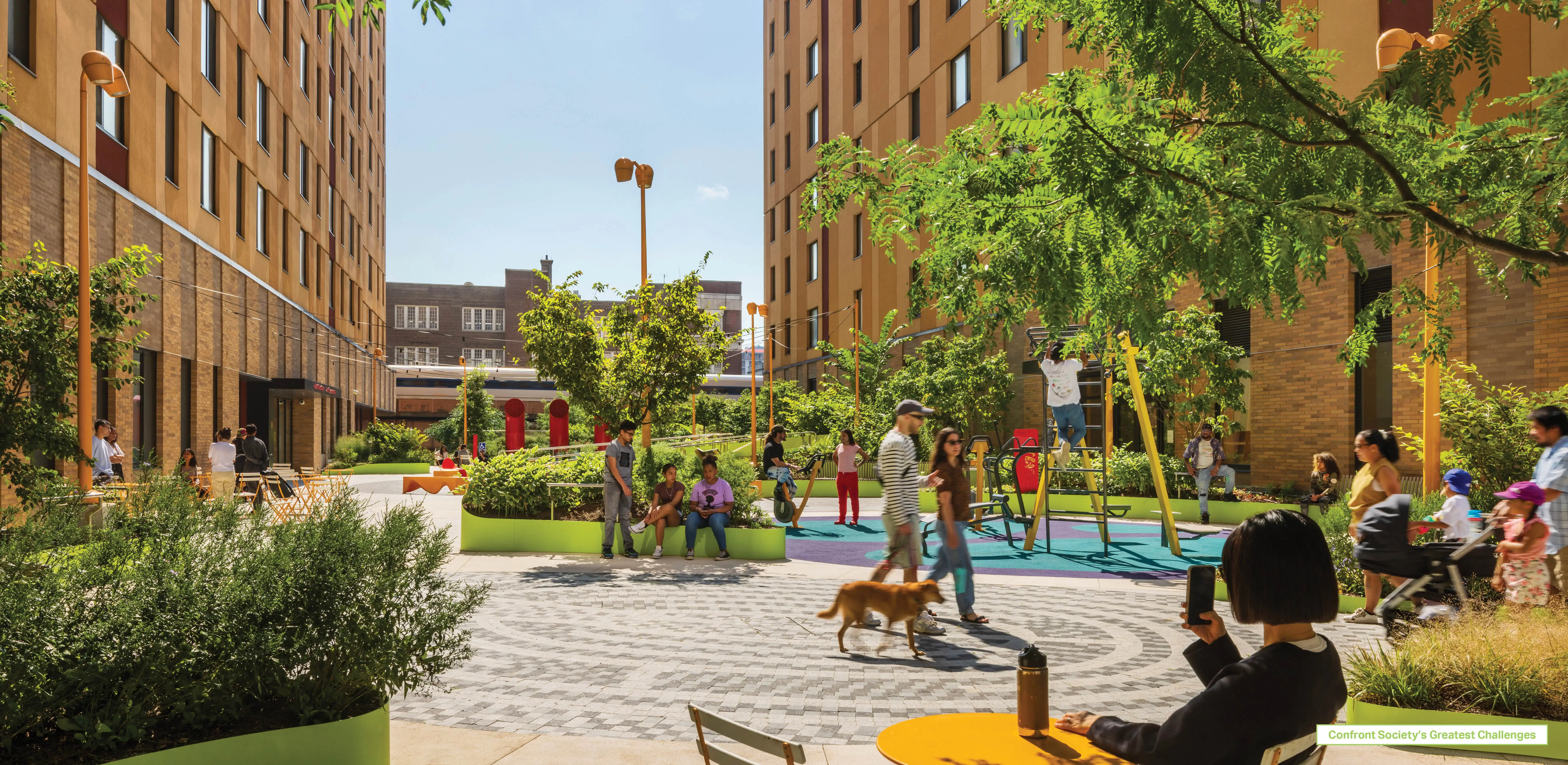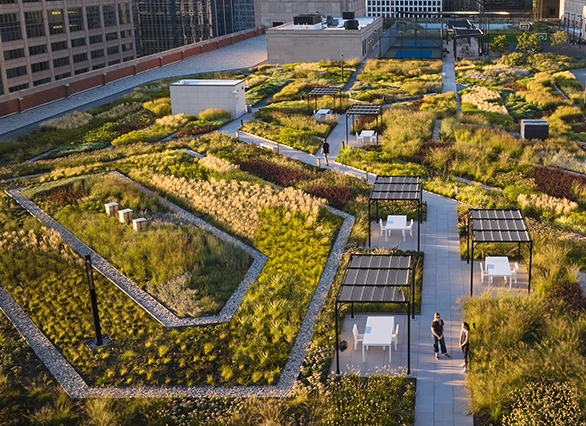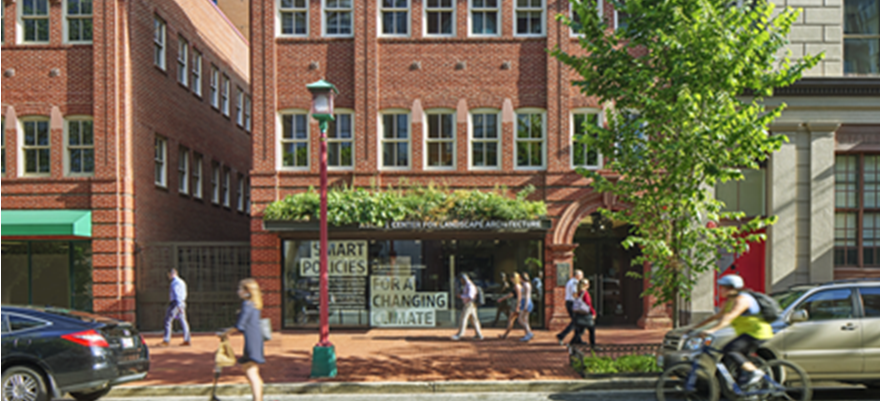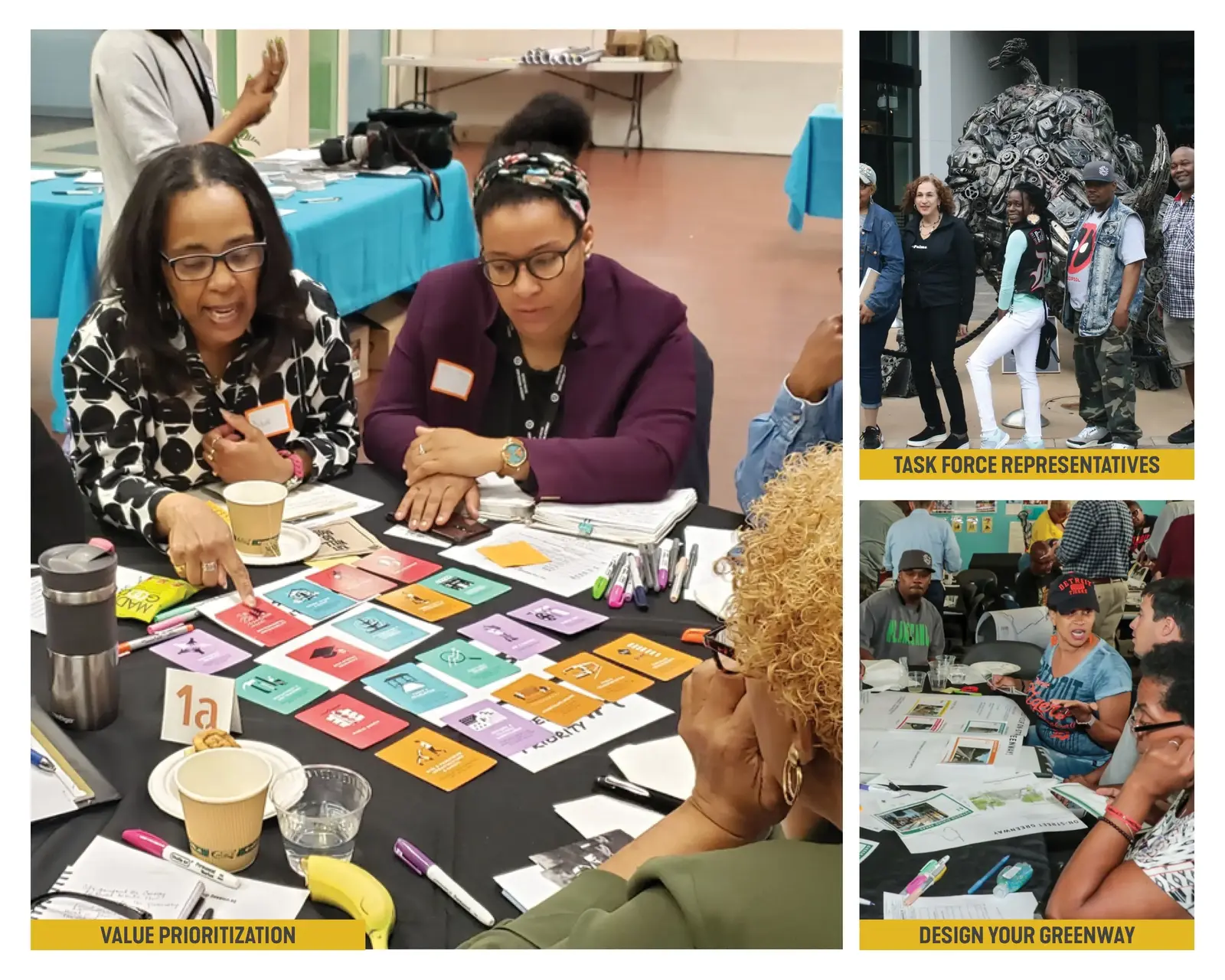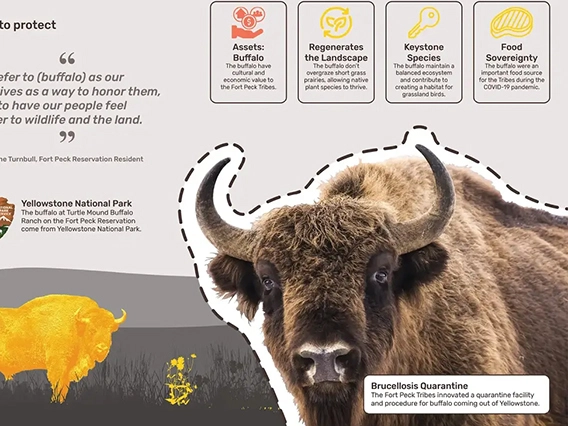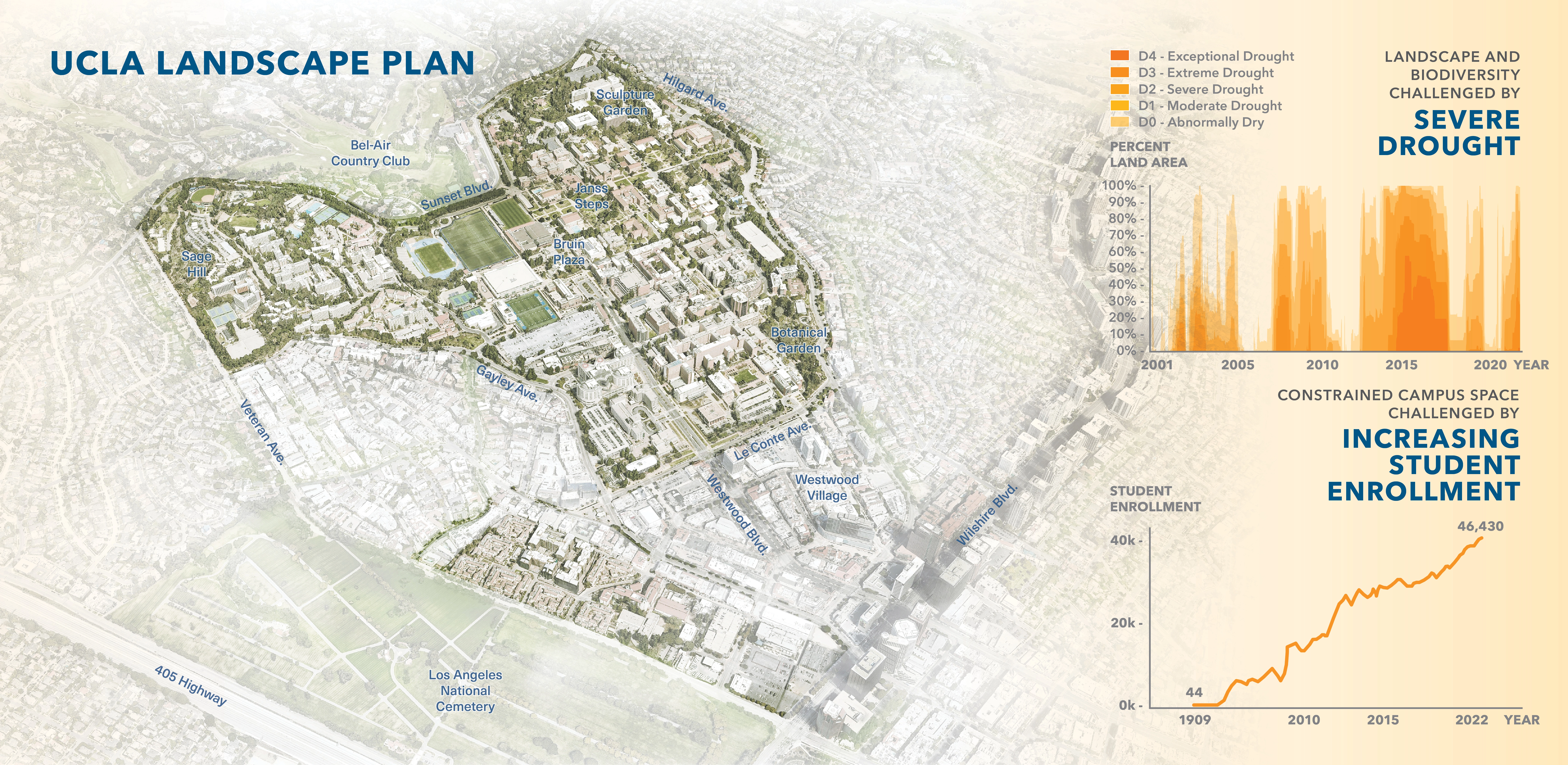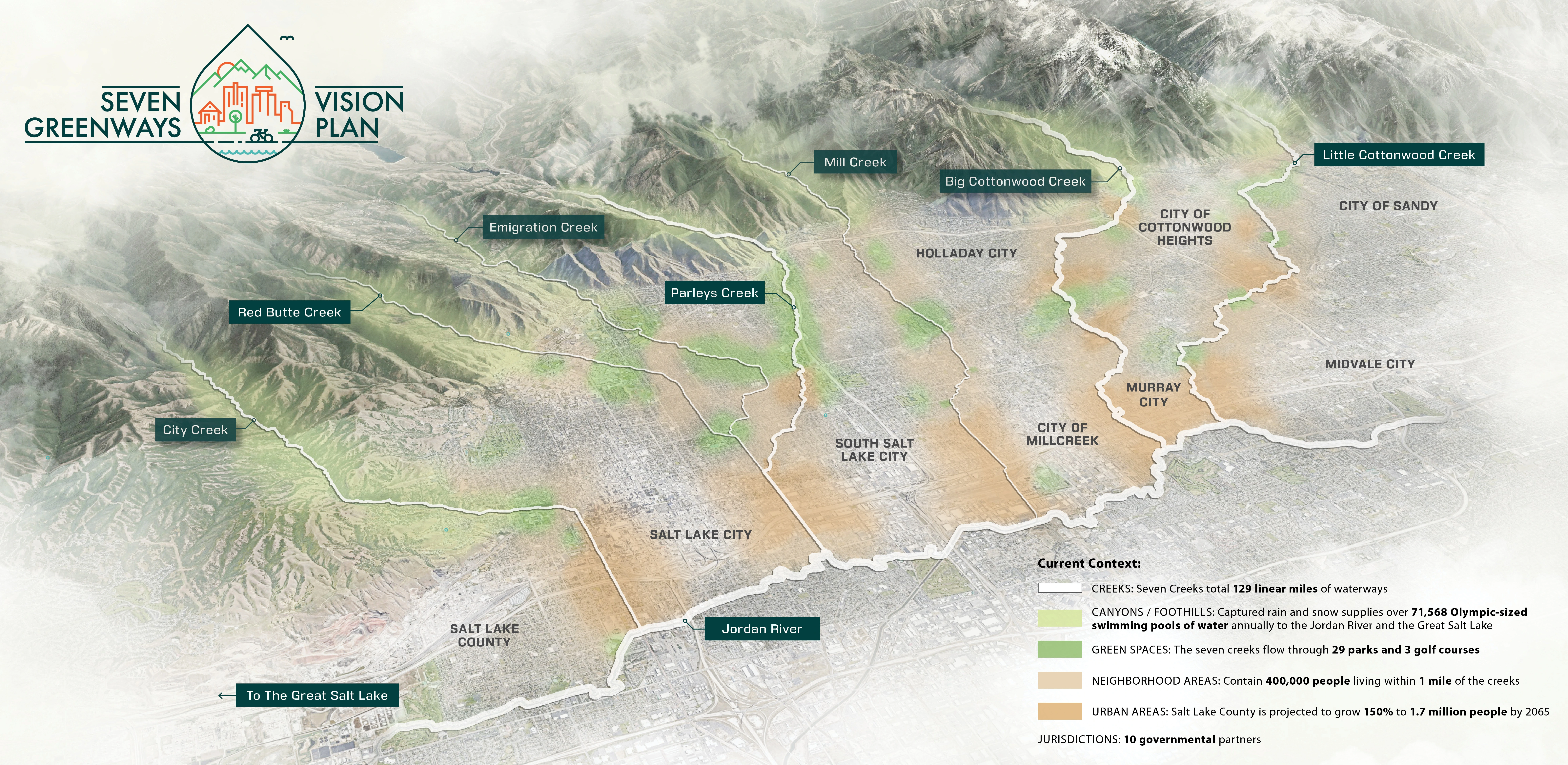Joe Louis Greenway Framework Plan
An interesting perspective and approach to the reconversion of space to improve communities, this well-thought-out plan truly advances diversity, equity, and inclusion. It offers a vision of on street and off-street connectivity. Detroit continues to be a city on the rise, a "comeback kid." Here is another excellent plan to address so many important issues. The Dequindre Cut has proven to be a successful greenway, and the Joe Louis Greenway would be equally successful.
The dots are connected to enhance community and ecosystem health while celebrating Detroit's history, culture, and neighborhood identity.
Awards Jury
-
The Joe Louis Greenway is a 27.5-mile planned non-motorized trail and linear park in Detroit that is reclaiming vacant industrial spaces to improve access to nature, play, and recreation for all Detroiters. The community-authored planning process-built trust through shared authorship. It celebrates the city’s unique history, culture, and neighborhood identity, provides a safe recreation experience, promotes economic development, connects neighborhoods and people, and restores the natural environment. Creative and engaging activities made the process accessible to a diverse group of stakeholders and community members from across the city. When completed, 46,000 Detroiters will live within a 10-minute walk to the Joe Louis Greenway.
-
This 27.5-mile loop greenway reutilizes vacant rail corridors that once serviced the city’s automotive industry. These transportation systems that were once so critical to Detroit’s economy are now scars of a former life. The Joe Louis Greenway (JLG) heals these wounds through a community-authored plan to transform this underutilized network, unite 23 distinct neighborhoods, and celebrate the powerful cultures and people of Detroit through design features, public art, signage, cultural destinations, and programming. Its name commemorates Detroit’s Joe Louis as a tireless advocate for social and racial justice for Black Americans, putting the city’s collective journey toward a more equitable future at the center of JLG’s mission.
Using geospatial and data analytics combined with community input, the team established an understanding of existing economic conditions, demographics, connectivity, mobility, accessibility, open space, and cultural destinations, and adapted routing and design decisions accordingly. Design standards for cross-sections, intersections, and amenities apply and improve on best practices for non-motorized systems and have resulted in new standards for pedestrian safety across the city. Analysis of existing stormwater systems, environmental conditions, and legacy land uses led to extensive green infrastructure and re-naturalization within the greenway corridor. The JLG’s planning and design reflects extensive community input and celebrates the cultures, histories, and lives of those living in the city. The JLG Framework Plan had significant impact well before breaking ground. The process brought community voices and perspectives to the table while fostering citizen advocacy. In partnership with the City, the planning team identified a working group of approximately 100 community leaders across the greenway impact area. The group tested innovative engagement activities, provided suggestions for larger meetings, and assisted with outreach to hard-to-reach populations. Overall, there were 17 planned events with over 600 attendees, with translators and fliers in Spanish, Arabic, and Bengali. City staff attended 44 additional community events to gather input. The planning process advanced critical dialogue on topics around equitable economic development such as job creation, ensuring benefits remain in the community, and preventing resident and business displacement. The resulting sense of community empowerment led to Midwest neighborhood members forming the nonprofit Greenway Heritage Conservancy to share information with residents about phase-one construction, and advocate for rezoning that will encourage more equitable small businesses and residential development. The City of Detroit, Joe Louis Greenway Partnership, and Detroit Riverfront Conservancy formed the Unified Greenway Partnership, and has already raised $178 million of its goal of $350 million for the completion and endowed maintenance of the JLG. The City of Detroit has also committed $3 million annually for operations and maintenance. An inclusionary and regenerative philosophy guided every step of the planning process, including the prioritizing of improvements in areas of city that haven’t seen significant public investment for decades. The first two miles will be completed in 2023 with another six miles completed in 2024. In his 2023 State of the City address, the Mayor of Detroit set ambitious targets for the completion of the full greenway by 2027.
-
- Studio Incognita - Identity, Branding, Messaging, and Wayfinding
- Sidewalk Detroit - Public Engagement and Arts & Culture
- HR & A - Housing & Economic Development
- Toole Design Group - Greenway Design
- Brian Charlton, ASLA - SmithGroup Landscape Architect
-
- Grasses: Big Bluestem
- Grasses: Fox Sedge
- Grasses: Cape Breeze
- Ground Cover: Bugleweed
- Ground Cover: lilyturf
- Ground Cover: Chinese Silver Grass
- Trees: Red Maple
- Trees: Bitternut Hickory
- Trees: Northern Red Oak
- Shrubs: Red and Black Chokeberry
- Shrubs: Redosier Dogwood
- Shrubs: Viburnum
- Perennial: Milkweed
- Perennial: Black Eyed Susan
- Perennial: Daylily
- Annual: Begonia
- Annual: Geranium
- Annual: Petunia

.webp?language=en-US)
